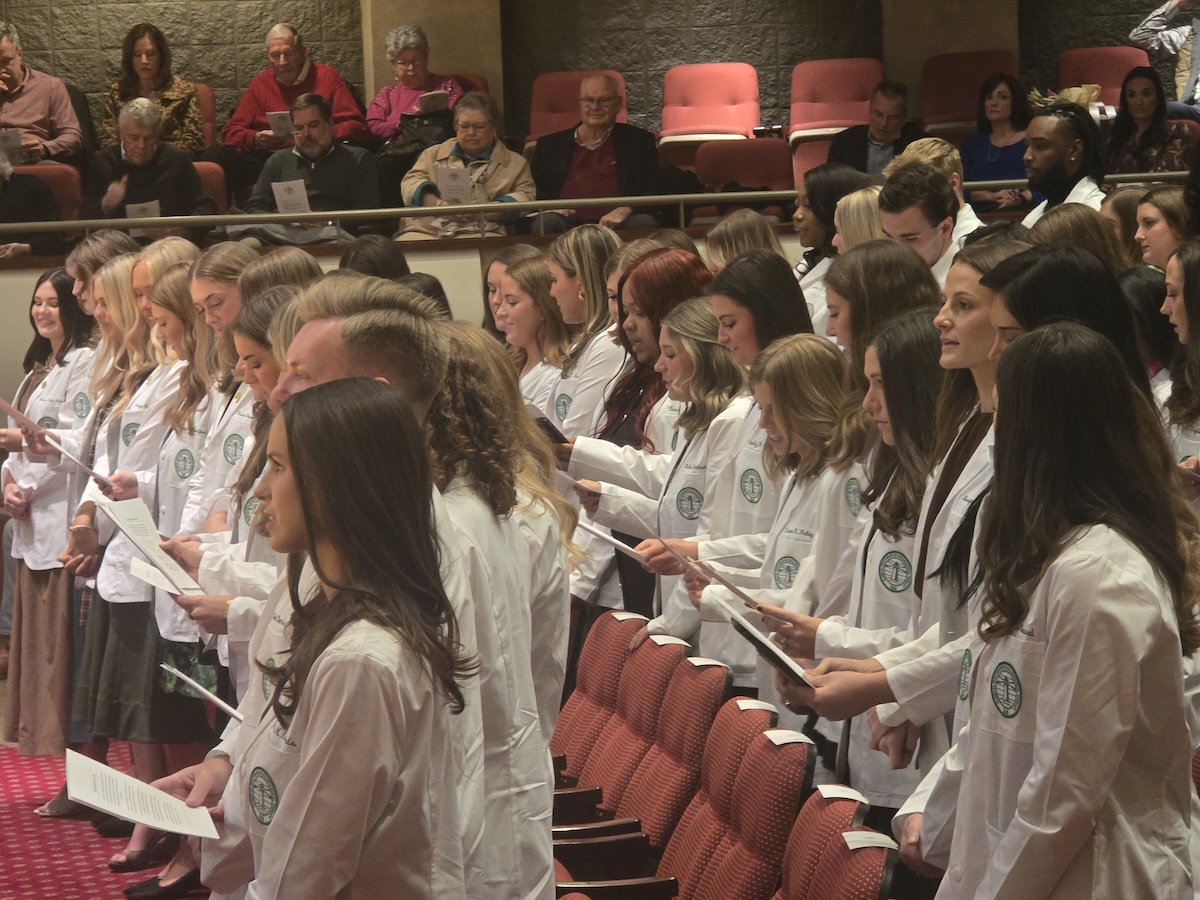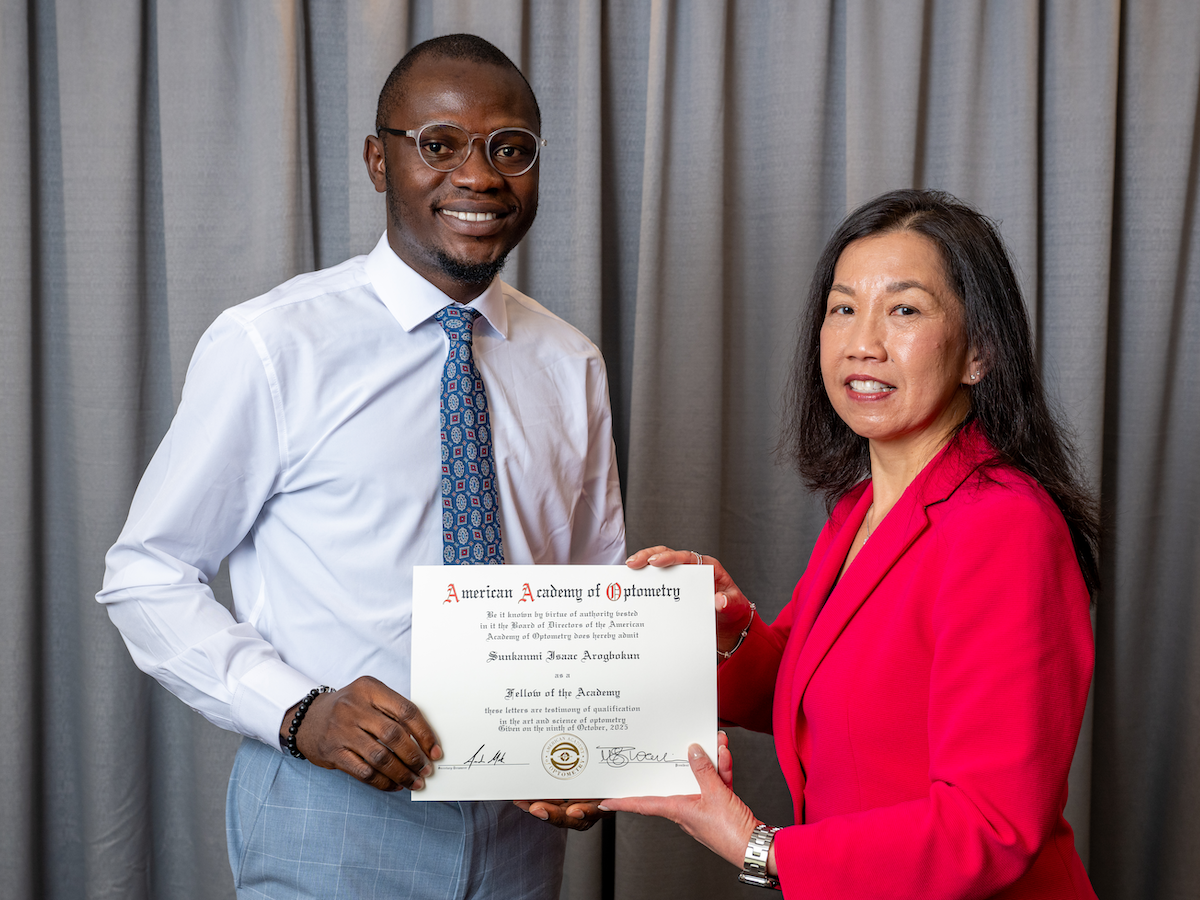As Women's History Month comes to a close, we are reflecting on this year's theme: "Providing Healing, Promoting Hope." It is a tribute to the countless women within the School of Health Professions and beyond who have devoted so much of themselves to improving health care so that others may follow in their footsteps. We asked a few of the many outstanding faculty within our school to talk about their work, in their own words, through the lenses of their identities and experiences. Read their answers below.
Ashley Parish, PT, DPT, CRT, assistant professor in the Department of Physical Therapy, has over a decade of experience in the intensive care unit setting. Parish has served in various roles at the university, local, and national levels. Most recently, she was elected as the Inaugural Education Chair for the Academy of Acute Care Physical Therapy. She oversees the simulation conference, combined section meeting, online learning center, and journal clubs to translate knowledge to physicians. Beyond her professional roles, she is a strong believer in serving our communities. She assists Don Lein in the Integrated Clinical Education Program, in which many of the clinics are pro-bono to provide physical therapy services to those who may have difficulty gaining access.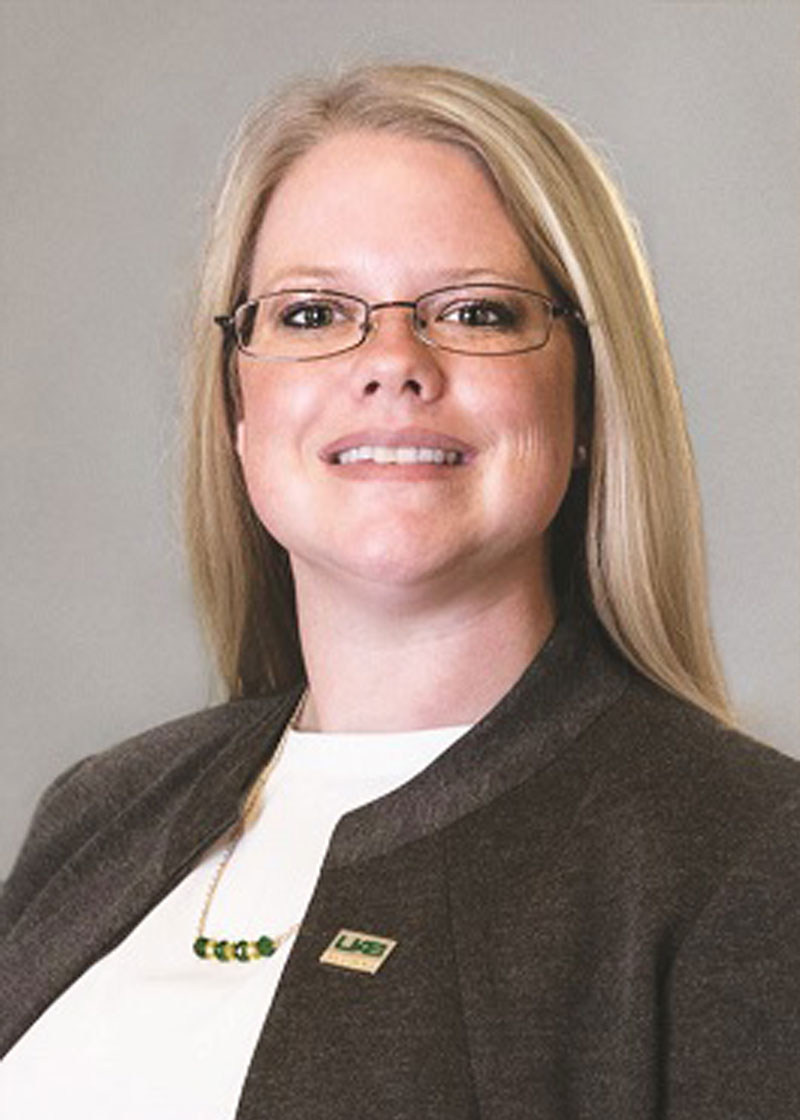 Ashley Parish, PT, DPT, CRT
Ashley Parish, PT, DPT, CRT
Q: What inspires your work?
The opportunity to better the profession and lives of others makes me passionate about service. Without passion and drive, our profession would be stagnant.
Q: Who is one woman that has inspired you and your career?
Linda Crane! She was one of the first three APTA board-certified clinical specialists in cardiopulmonary physical therapy (awarded in 1985) and was awarded the Lucy Blair Service Award for distinguished service to the profession in 1992. She was a juggernaut in the field of service for physical therapy. Her career was dedicated to improving the field of cardiopulmonary pediatrics, which is my career goal as well. Fun fact: Linda Crane served on faculty in the Department of PT at UAB!
Q: What barriers do you face as a woman in your profession? How have you overcome them?
The biggest barrier I’ve faced is related to being a younger woman. I am thankful that I’ve met supportive mentors along the way that have invested in me and allowed me to overcome that barrier. For instance, Dave Morris, PT, Ph.D., chair of the Department of Physical Therapy, gave me an opportunity to teach at UAB. Seeds bloom when they are in the right soil. Sometimes you have to break through challenges to find the right soil for you.
Q: What advice would you give the next generation of female physical therapists?
1) Find a good mentor in an area that you are passionate about. Don’t be afraid to reach out to someone. PTs are always willing to help! 2) Reflection is key. Each day I reflect on what went well and how I could improve. This has helped me grow tremendously as a person and leader.
Courtney Peterson, Ph.D., associate professor in the Department of Nutrition Sciences, is an internationally recognized researcher on intermittent fasting. Her research focuses on daily intermittent fasting, which is also known as time-restricted eating (TRE). She is the PI of several clinical trials on TRE and serves as a co-investigator or consultant on a handful of other studies on intermittent fasting. She was the first to test early time-restricted eating (early TRE or eTRE) in humans—a version of TRE that involves eating early in the day to be in alignment with circadian rhythms in metabolism. Having trained in metabolism and nutrition at Pennington Biomedical Research Center and in chronobiology at Brigham and Women’s Hospital, the goal of her research is to develop novel dietary interventions involving intermittent fasting, chronobiology, and diet quality to treat cardiometabolic diseases such as type 2 diabetes and obesity.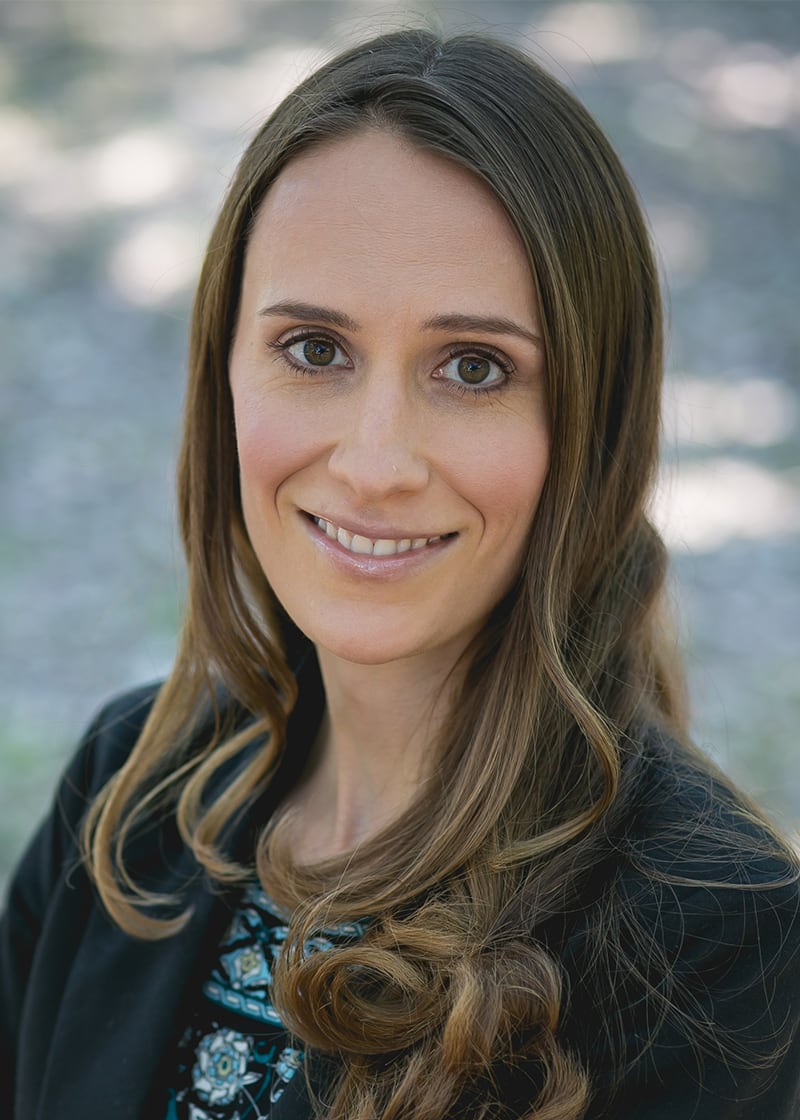 Courtney Peterson, Ph.D.
Courtney Peterson, Ph.D.
Q: What inspires your research?
Genuinely, I want to have the biggest impact in helping the most people possible. A poor diet is the leading cause of death worldwide, and I want to save or improve as many lives as possible. I am interested in “nutrition as medicine.” I want to find out to what degree can we use natural approaches like eating a healthy diet to reverse or even potentially cure chronic diseases like type 2 diabetes, obesity, hypertension, and cancer.
Q: Who is one woman that has inspired you and your career?
There are lots of people, ranging from two-time Nobel Prize winner Marie Curie to Leanne Redman, MS, Ph.D., a colleague and friend of mine who has been a role model and champion for women and for me.
Q: What barrier do you face being a woman in research? How do you overcome those barriers?
As a younger woman in the field, at times I am taken less seriously. The interaction between the two can be more of a challenge. I know I am an effective leader, and the push-back I receive causes me to work harder on approaching this issue, even when I know I am doing the right thing.
Q: What advice would you give to the next generation of women in your field?
Do science that makes a difference in people's lives, and second, don't be afraid to take bold risks.
Haiyan Qu, Ph.D., associate professor in the Department of Health Services Administration, teaches quantitative research method courses in both health administration and health informatics master's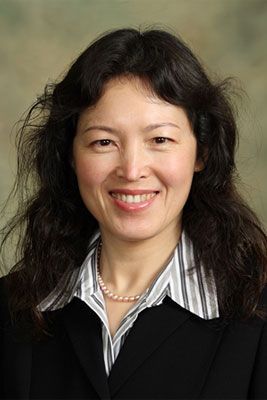 Haiyan Qu, Ph.D. programs. As a mixed methodologist, her research focuses on health disparities, patient-centered outcomes, shared decision making, transplant quality, and implementation. She has served as an investigator and methodologist for over 20 research projects and has published articles in the Journal of General Internal Medicine, Academic Medicine, American Journal of Health Behavior, Clinical Journal of the American Society of Nephrology, The Journal of Rheumatology, Clinical Rheumatology, Journal of Cancer Survivorship, Transplantation, and American Journal of Transplantation.
Haiyan Qu, Ph.D. programs. As a mixed methodologist, her research focuses on health disparities, patient-centered outcomes, shared decision making, transplant quality, and implementation. She has served as an investigator and methodologist for over 20 research projects and has published articles in the Journal of General Internal Medicine, Academic Medicine, American Journal of Health Behavior, Clinical Journal of the American Society of Nephrology, The Journal of Rheumatology, Clinical Rheumatology, Journal of Cancer Survivorship, Transplantation, and American Journal of Transplantation.
Q: What led you to your current role?
When I started working as a clinical nurse seeing patients and families struggle with diseases every day, I decided to contribute my efforts to improve health and healthcare. I completed my master's degree in Hospital Management and Ph.D. in Health Services Administration with an emphasis on Health Services Research in hopes to contribute and improve the lives of patients.
Q: Who is one woman that has inspired you and your career?
My mother inspires me. She told me when I was young, "If you are to do one thing, do it right and do your best."
Q: What advice would you give to the next generation of women in your field?
It is never too late to chase your dreams. You must take care of yourself first.
Brooks Wingo, Ph.D., associate professor in the Department of Occupational Therapy and director of the Health Behavior and Disability Lab, focuses her research on how health behaviors within diet and exercise can impact physical function and metabolic health in people with multiple sclerosis and other chronic health conditions. 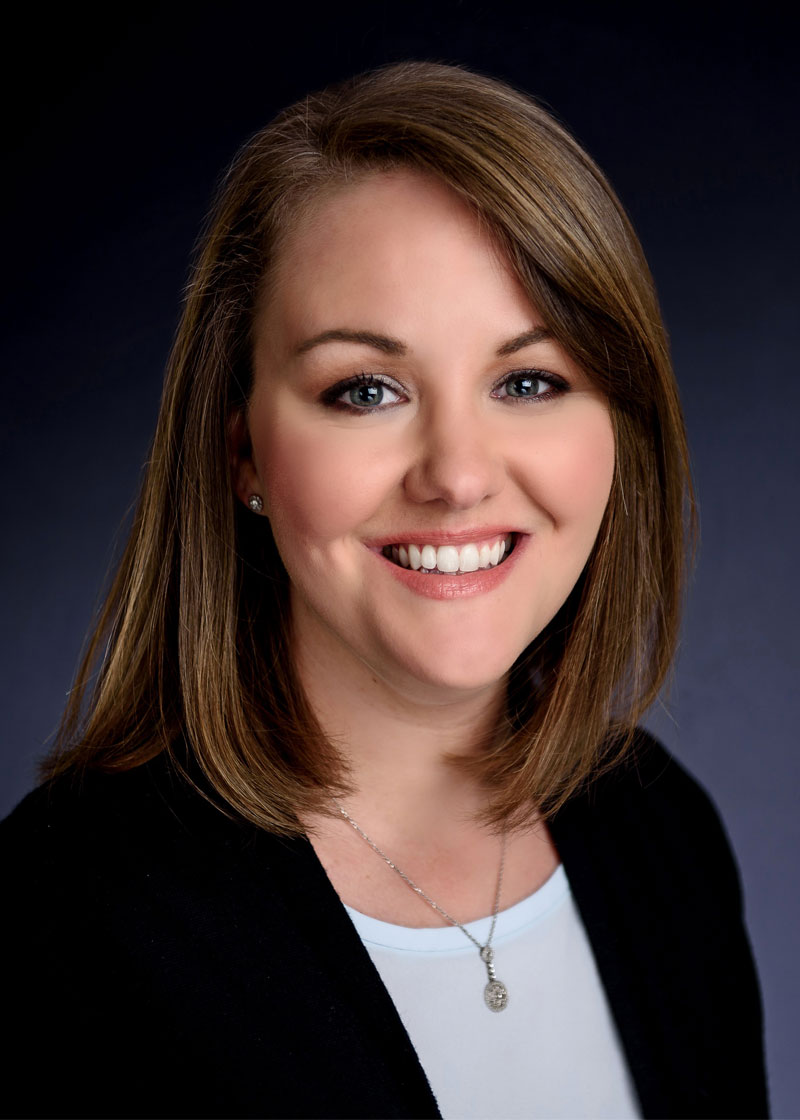 Brooks Wingo, Ph.D.
Brooks Wingo, Ph.D.
Q: As the director of the Health Behavior and Disability Lab, what drives your work?
Maintaining a healthy weight and sticking to healthy behaviors is difficult for everyone, but for people with MS and other disabilities, it can be extra difficult. Because they often have symptoms like pain, fatigue, and depression, adherence to a healthy diet that requires planning, prep, and cooking can be very overwhelming. So my goal is to find dietary interventions that help manage symptoms while still being realistic for people to follow.
Q: Who is a woman that has inspired you and your career?
I have to name two who have equally influenced me: Julie Locher, Ph.D., and Laura Vogtle, OT, are both UAB faculty who mentored me during my postdoc and early faculty years and truly helped get me through a lot of self-doubt and career obstacles.
Q: How have you overcome adversity as a woman within your profession?
As a woman, I have had to be very vocal about my commitment to succeeding in academia while also being a mother. I think learning to politely but firmly let people know that I was able to be a successful PI and also have a family was a significant barrier to overcome.
Q: What advice would you give the next generation of women in your field?
Find other women who are not only at the same career stage as you are, but also at the same life stage. Marriage, divorce, having children, caring for elderly parents are things we all deal with, and having someone in a similar field who understands the career pressures you are under is invaluable to helping you juggle stressors outside of work.
